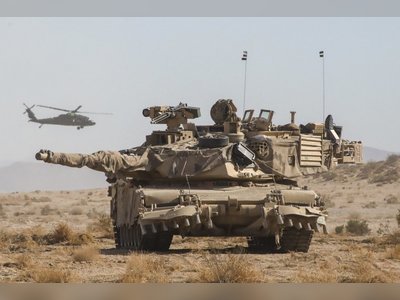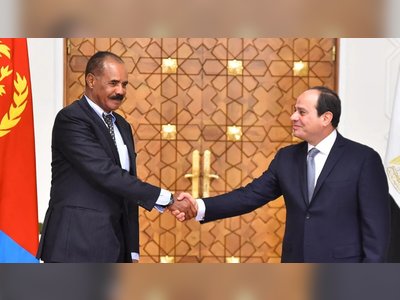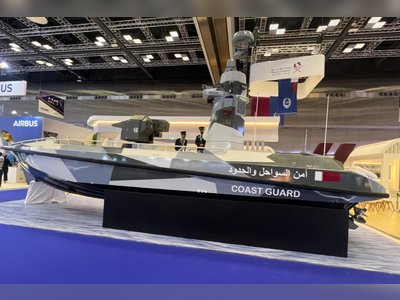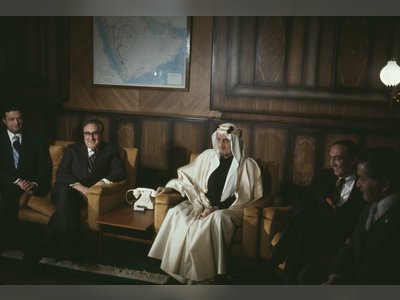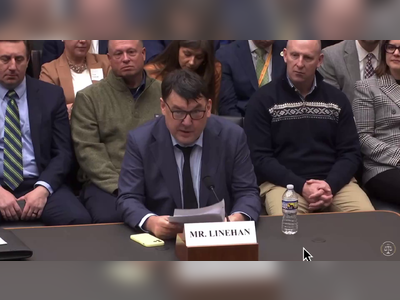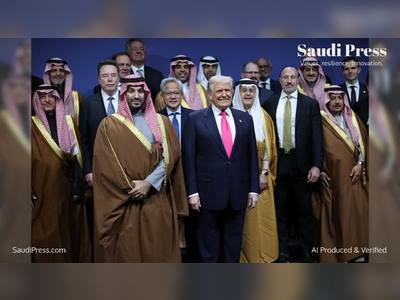Military Operation Launched Against ISIS in Western Iraq: Continuation of the Debate on the Missions of the International Coalition
The Security Media Cell affiliated with the Joint Operations Command announced the launch of a major military operation to hunt down ISIS in the Anbar desert in western Iraq.
Meanwhile, the Iraqi Army Chief of Staff revealed what he described as the International Coalition's seriousness regarding organizing its presence in the country.
The Security Media Cell stated in an early Sunday announcement the initiation of the "Righteous Promise Two" operation, which covers the sectors of operations for Al-Jazeera, Anbar, and Karbala. The operation involves forces from the Ministry of Defense, the Ministry of Interior, the Popular Mobilization Forces, and the Counter-Terrorism Service, with support from the Air Force and the Army Aviation.
The statement added that this operation is "based on intelligence information to pressure the terrorist detachments and to cleanse the desert of their remnants, reaching the international borders in cooperation and coordination with the border forces."
The statement further clarified that "the security units have determined their targets in this phase and have laid out the plans to implement them in order to defeat what remains of the terrorist ISIS gangs and destroy their empty lairs."
On his part, the commander of Anbar operations for the Popular Mobilization Forces, Qasim Musleh, said in a similar statement that the operation "is the largest among the military operations launched by Iraqi forces in the western desert." He added that it "aims to thwart the terrorist plots in Anbar... to enhance security and stability and chase the remnants of the terrorist ISIS bands," explaining that "the operation was executed based on intelligence that indicates the presence of ISIS terrorist movements in the form of cells aiming to disrupt the security situation in Anbar."
Musleh pointed out that "the operation was launched under the supervision and planning of the Joint Operations Command and with the participation of the Anbar operations leadership, the Popular Mobilization Forces leadership for Anbar province, the Central Euphrates operations command, and the associated units, in conjunction with the army."
Bilateral Partnership with the International Coalition
The operation comes at a time when Iraqi officials' statements regarding the imminent withdrawal of the International Coalition forces, especially the ones from the United States with the largest presence, contrast with Coalition representatives' declarations, which do not include a withdrawal clause.
The Iraqi Army Chief of Staff, Lieutenant General Abdul Amir Rashid Yarallah, confirmed the continuation of the meetings of the senior military committee to end the mission of the International Coalition in Iraq.
The official Iraqi News Agency quoted Yarallah as saying that a visit by a high-ranking Iraqi military delegation to Washington in 2023 "discussed many issues, including the file on ending the International Coalition's mission in Iraq," pointing out that "the conclusion of the statement was the agreement to form a high committee from Iraq and also a high committee from the Coalition forces that would take upon itself to end the International Coalition's mission with specific timings."
Yarallah mentioned that the "commander-in-chief of the armed forces ordered upon our return from Washington to form the high committee chaired by me and with the membership of several officers, while the Coalition side formed a committee chaired by the commander of the US Central Area forces."
The Iraqi delegation included the Chief of Staff, the Minister of Defense, the Deputy Commander of Joint Operations, the Head of the Counter-Terrorism Service, and the Chief of Staff of the Peshmerga.
According to Yarallah, "three committees were formed after the first session chaired by the commander-in-chief of the armed forces. The first is related to the assessment of the terrorist ISIS, the second is the operational environment committee related to the operational fields, and the third focuses on the capabilities of the Iraqi security forces," adding: "We in the Iraqi side have formed the committees, where there was the ISIS assessment committee, the environmental and operational committee, and the capabilities committee."
He indicated that "the second meeting of the committee was held last week, which will be every 15 days," noting that "the meetings are ongoing and are proceeding smoothly until reaching the file that defines the timings for ending the Coalition's mission in Iraq."
Yarallah revealed what he called "a seriousness that we felt in the meetings from the International Coalition and that there is a responsiveness from the Coalition with regard to our requirements and what we need from them."
Regarding the missions of the International Coalition, Yarallah stated that "the Coalition's missions now are limited to aerial support, and it does not have any military forces on the ground; this task is solely for our security forces in various capacities from the army and the Popular Mobilization Forces, and the Counter-Terrorism Service and the Federal Police."
Yarallah clarified that "the discussion with the International Coalition focuses on the aerial and intelligence aspects, while from the ground perspective, we are able to perform our tasks and do not need any force to support or back us up."
He emphasized that "the Iraqi vision is to end the Coalition's mission completely and define a time frame to complete the Coalition's entire mission while transitioning to the phase of bilateral partnership and in accordance with memorandums of understanding between the Iraqi Ministry of Defense and a number of Coalition countries."
The Security Media Cell stated in an early Sunday announcement the initiation of the "Righteous Promise Two" operation, which covers the sectors of operations for Al-Jazeera, Anbar, and Karbala. The operation involves forces from the Ministry of Defense, the Ministry of Interior, the Popular Mobilization Forces, and the Counter-Terrorism Service, with support from the Air Force and the Army Aviation.
The statement added that this operation is "based on intelligence information to pressure the terrorist detachments and to cleanse the desert of their remnants, reaching the international borders in cooperation and coordination with the border forces."
The statement further clarified that "the security units have determined their targets in this phase and have laid out the plans to implement them in order to defeat what remains of the terrorist ISIS gangs and destroy their empty lairs."
On his part, the commander of Anbar operations for the Popular Mobilization Forces, Qasim Musleh, said in a similar statement that the operation "is the largest among the military operations launched by Iraqi forces in the western desert." He added that it "aims to thwart the terrorist plots in Anbar... to enhance security and stability and chase the remnants of the terrorist ISIS bands," explaining that "the operation was executed based on intelligence that indicates the presence of ISIS terrorist movements in the form of cells aiming to disrupt the security situation in Anbar."
Musleh pointed out that "the operation was launched under the supervision and planning of the Joint Operations Command and with the participation of the Anbar operations leadership, the Popular Mobilization Forces leadership for Anbar province, the Central Euphrates operations command, and the associated units, in conjunction with the army."
Bilateral Partnership with the International Coalition
The operation comes at a time when Iraqi officials' statements regarding the imminent withdrawal of the International Coalition forces, especially the ones from the United States with the largest presence, contrast with Coalition representatives' declarations, which do not include a withdrawal clause.
The Iraqi Army Chief of Staff, Lieutenant General Abdul Amir Rashid Yarallah, confirmed the continuation of the meetings of the senior military committee to end the mission of the International Coalition in Iraq.
The official Iraqi News Agency quoted Yarallah as saying that a visit by a high-ranking Iraqi military delegation to Washington in 2023 "discussed many issues, including the file on ending the International Coalition's mission in Iraq," pointing out that "the conclusion of the statement was the agreement to form a high committee from Iraq and also a high committee from the Coalition forces that would take upon itself to end the International Coalition's mission with specific timings."
Yarallah mentioned that the "commander-in-chief of the armed forces ordered upon our return from Washington to form the high committee chaired by me and with the membership of several officers, while the Coalition side formed a committee chaired by the commander of the US Central Area forces."
The Iraqi delegation included the Chief of Staff, the Minister of Defense, the Deputy Commander of Joint Operations, the Head of the Counter-Terrorism Service, and the Chief of Staff of the Peshmerga.
According to Yarallah, "three committees were formed after the first session chaired by the commander-in-chief of the armed forces. The first is related to the assessment of the terrorist ISIS, the second is the operational environment committee related to the operational fields, and the third focuses on the capabilities of the Iraqi security forces," adding: "We in the Iraqi side have formed the committees, where there was the ISIS assessment committee, the environmental and operational committee, and the capabilities committee."
He indicated that "the second meeting of the committee was held last week, which will be every 15 days," noting that "the meetings are ongoing and are proceeding smoothly until reaching the file that defines the timings for ending the Coalition's mission in Iraq."
Yarallah revealed what he called "a seriousness that we felt in the meetings from the International Coalition and that there is a responsiveness from the Coalition with regard to our requirements and what we need from them."
Regarding the missions of the International Coalition, Yarallah stated that "the Coalition's missions now are limited to aerial support, and it does not have any military forces on the ground; this task is solely for our security forces in various capacities from the army and the Popular Mobilization Forces, and the Counter-Terrorism Service and the Federal Police."
Yarallah clarified that "the discussion with the International Coalition focuses on the aerial and intelligence aspects, while from the ground perspective, we are able to perform our tasks and do not need any force to support or back us up."
He emphasized that "the Iraqi vision is to end the Coalition's mission completely and define a time frame to complete the Coalition's entire mission while transitioning to the phase of bilateral partnership and in accordance with memorandums of understanding between the Iraqi Ministry of Defense and a number of Coalition countries."





